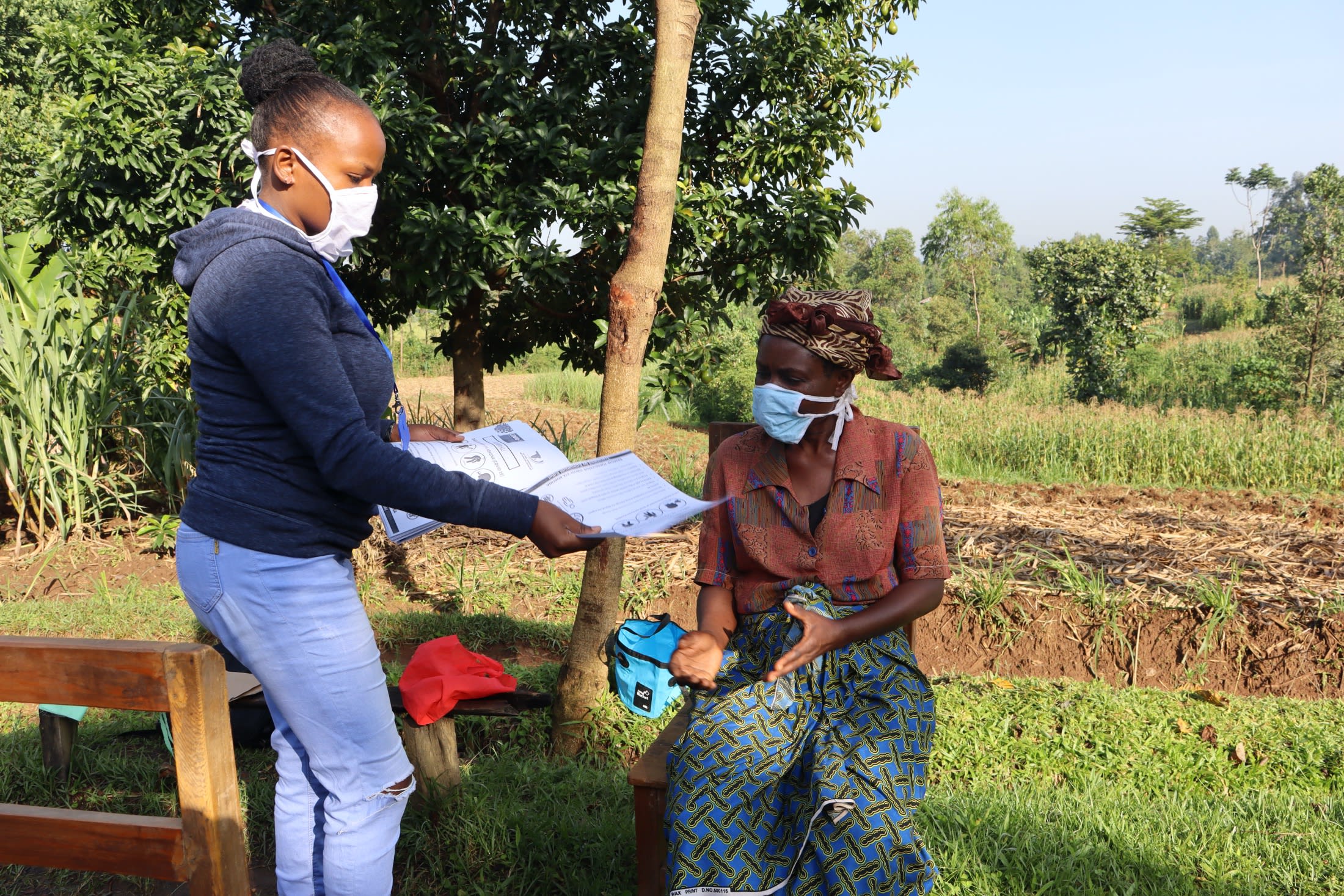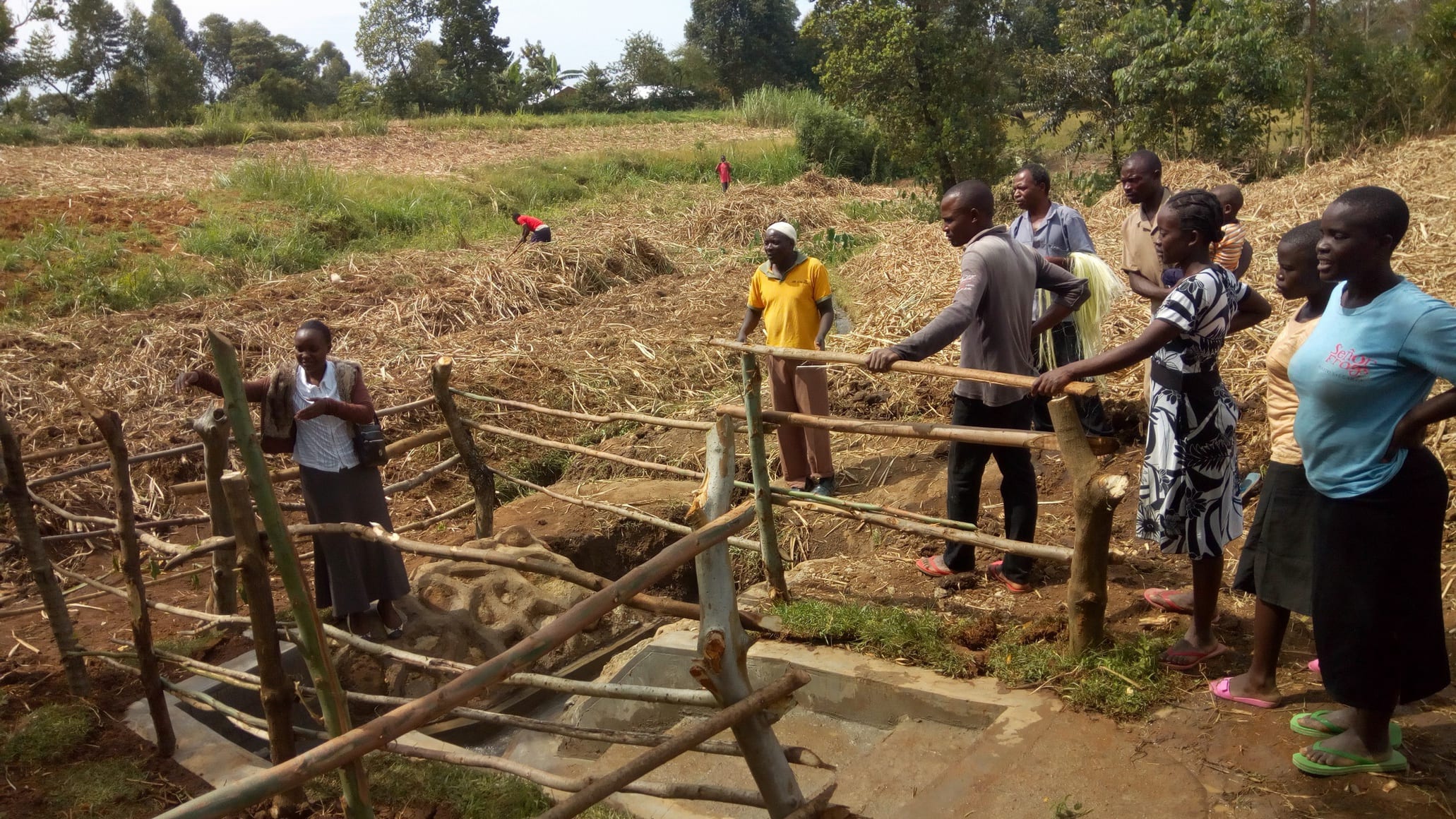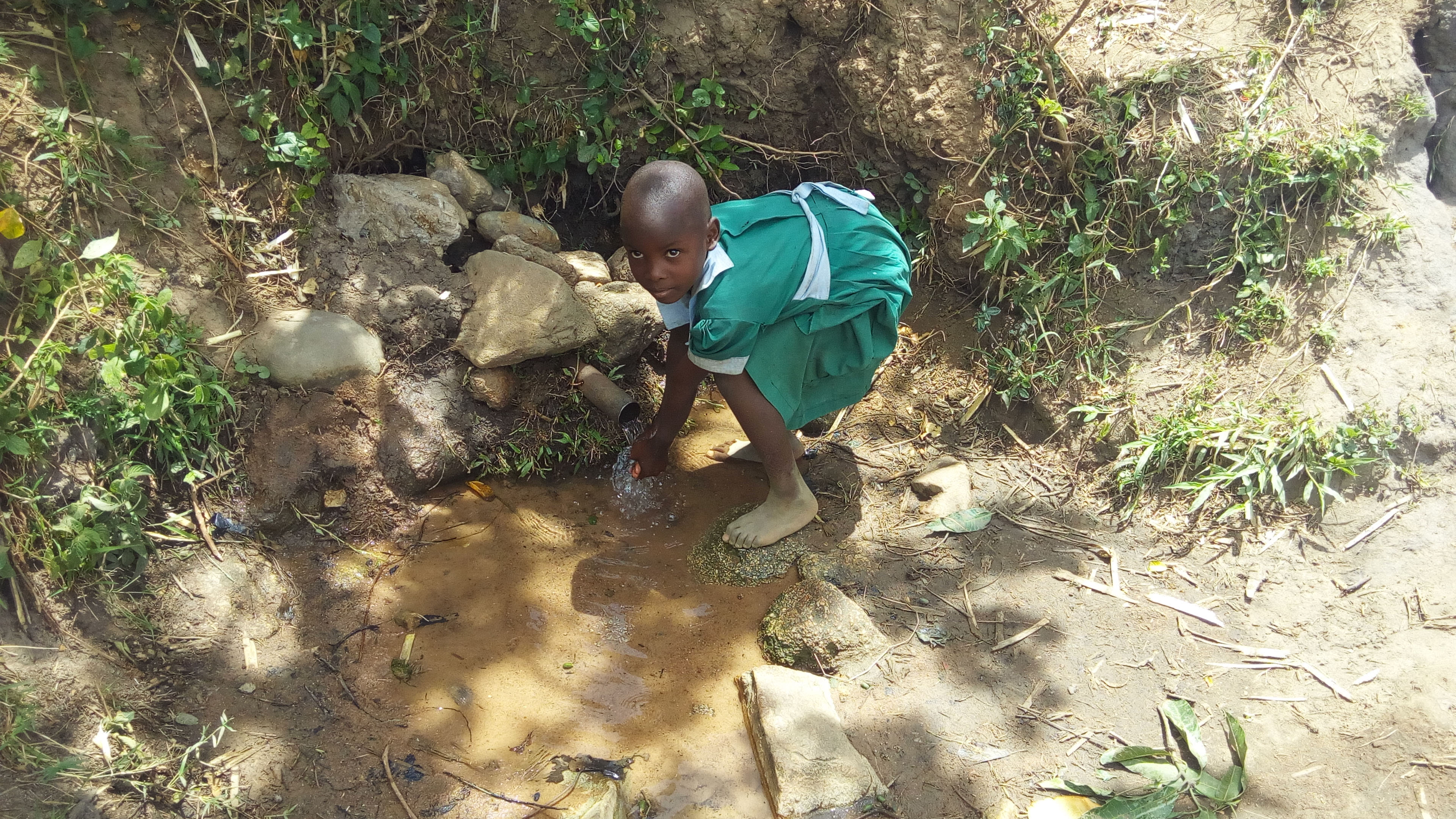This project is a part of our shared program with Western Water and Sanitation Forum (WEWASAFO). Our team is pleased to directly share the below report (edited for clarity, as needed).
Welcome to the Community
The people of Futsi Fuvili Village wake up very early in the morning to prepare their children for school and to work on their farms. The community living around the spring keeps dairy cattle and grow maize, vegetables and sugarcane. A good number of community members have lots of trees on their land, which serve both as a source of firewood and income generation - when they sell the trees for timber. The community is special because through farming and keeping dairy animals, they are able to earn enough money to educate their children. They are very hardworking!
Water Situation
Futsi Fuvili Community is predominantly inhabited by the Kabras sub-tribe of the Luhyia. However, other tribes come and go to draw water from their water sources. Patrick Munyala Spring is one of the main water sources, serving 140 people from 20 different households. They use the water for drinking, irrigation during the dry seasons, cooking, and other household chores.
This spring is open to contamination and predisposes its users to waterborne diseases such as typhoid, amoeba and malaria. One of the locals who live nearby the spring reports that during rainfall, rainwater floods the spring and makes the water filthy.
Sanitation Situation
It was also noted that more than half of homes here still don't have pit latrines. While some people share sanitation facilities with their neighbors, others reportedly opt for open defecation; this was endangering the entire community to fecal-oral diseases. If latrines are old, dirty, or poorly built, using the bushes as a bathroom often seems the safer option. Many of the latrines we observed are made of wooden slats that rot away and are almost impossible to clean.
When humans use the bushes as animals do, there is even a greater level of contamination spread around by flies, animals, and rainwater. Not to mention that rainwater is already washing a lot of waste into Patrick Munyala Spring. Mr. Abraham Malova relies on the spring and has noticed this. "This is a God-given opportunity, and the idea of protecting the spring will solve the water problems. Moreover, the sanitation facilities and health promotion campaign through trainings will enable, enlighten and capacity-build the community to take matters related to community health as a priority," he said.
Plans: Hygiene and Sanitation Training
Community members will attend hygiene and sanitation training for at least two days. This training will ensure participants are no longer ignorant about healthy practices and their importance. The facilitator plans to use PHAST (Participatory Hygiene and Sanitation Transformation), CLTS (Community-Led Total Sanitation), ABCD (Asset-Based Community Development), group discussions, handouts, and demonstrations at the spring. One of the most important topics we plan to cover is open defecation and its dangers, as well as having and using a pit latrine.
Training will also result in the formation of a committee that will oversee operations and maintenance at the spring. They will enforce proper behavior around the spring and delegate tasks that will help preserve the site, such as building a fence and digging proper drainage. The fence will keep out destructive animals, and the drainage will keep the area’s mosquito population at a minimum.
Plans: Sanitation Platforms
On the final day of training, participants will select five families that should benefit from new latrine floors.
Training will also inform the community and selected families on what they need to contribute to make this project a success. They must mobilize locally available materials, such as bricks, clean sand, hardcore, and ballast. The five families chosen for sanitation platforms must prepare by sinking a pit for the sanitation platforms to be placed over. All community members must work together to make sure that accommodations and food are always provided for the work teams.
Plans: Spring Protection
Fetching water is predominantly a female role, done by both women and young girls. Protecting the spring and offering training and support will therefore help empower the female members of the community by giving them more time and efforts to engage and invest in income-generating activities.
In addition, protecting the spring will ensure that the water is safe, adequate and secure. Construction will keep surface runoff and other contaminants out of the water.

 Protected Spring
Protected Spring
 Rehabilitation Project
Rehabilitation Project


































